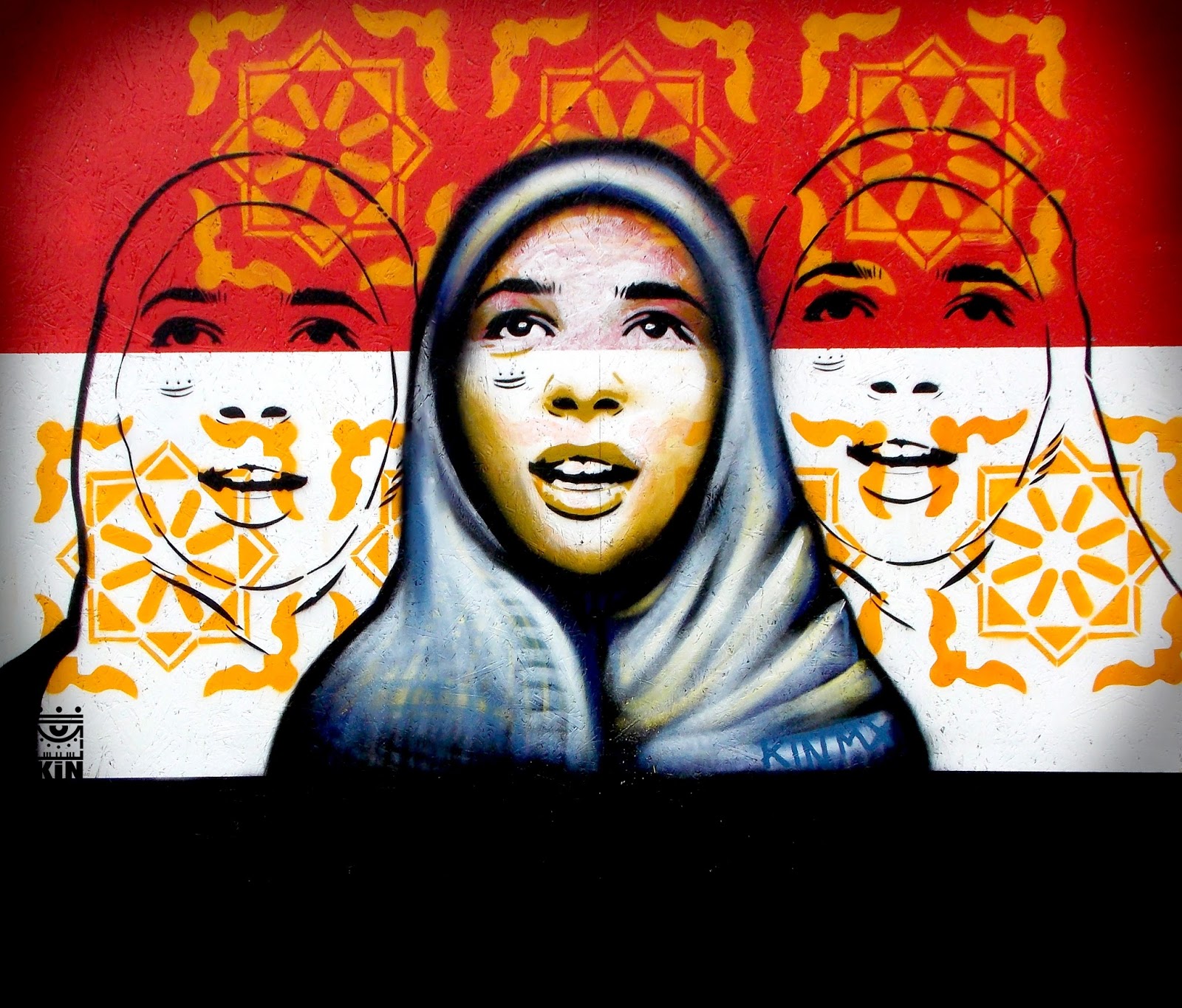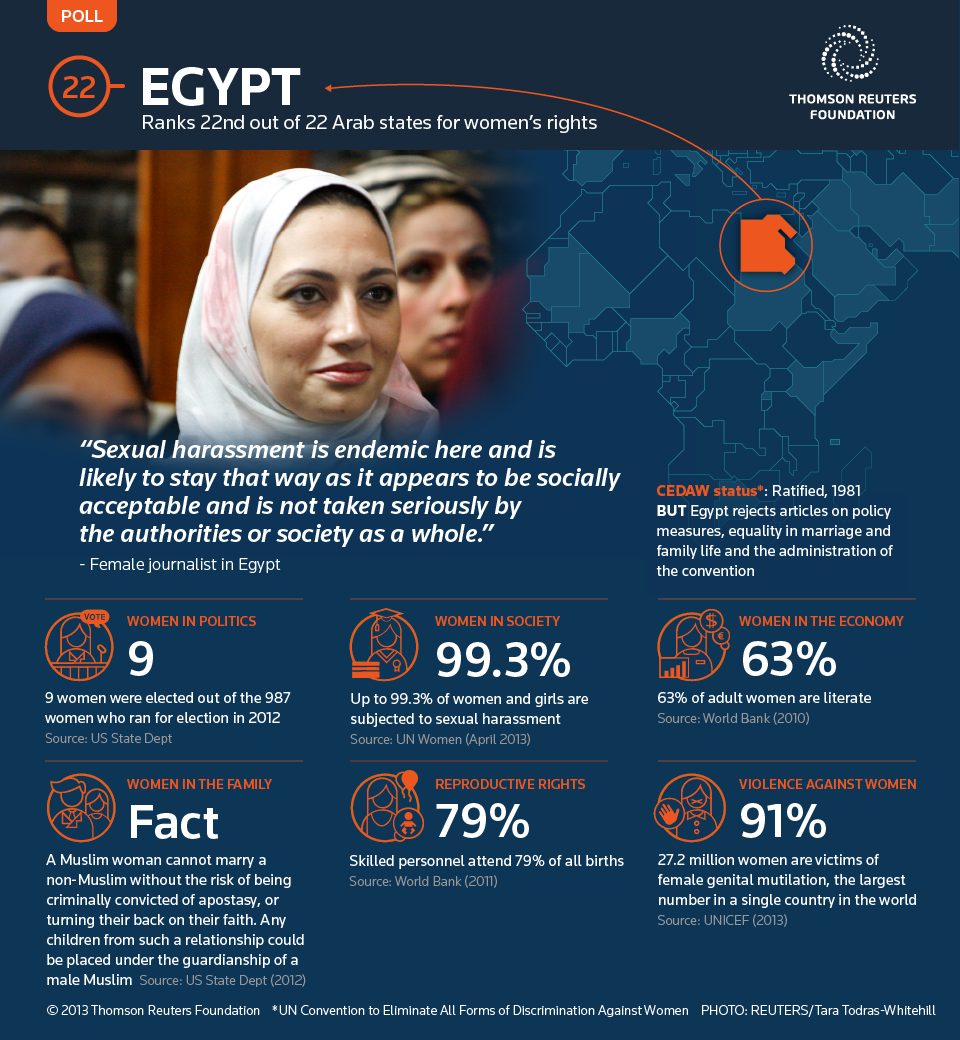The nation referred to as “Om El Donya” or “Mother of the World” is not leading the world in technology, industry, culture, health, or education, but is instead leading the world in sexual harassment and drug use.
By Mohamed Khairat, Founder, EgyptianStreets.com

Reports released this week have shocked both Egyptians and the international community, after it was revealed that Egypt leads the Arab world in sexual harassment, the political oppression of women, and female genital cutting. This comes after previous reports this year stated that Egypt leads the world in drug use, the number of Hepatitis C infections, and the number of deaths caused by road accidents.
More recently, the World Economic Forum ranked Egypt as the worst country in the world in the quality of primary education, while HSBC went as far as declaring Egypt the worst country to be an expatriate.
Egypt has been closely watched since the January 25 revolution in 2011, with people around the world hailing the revolution as a great achievement. Yet, what exactly did Egyptians achieve when Egypt is now ranked right behind Saudi Arabia, Yemen, or Syria when it comes to sexual violence towards women?

According to the Economist, Egypt ranks first in the list of countries that recorded a decline in access to economic opportunities for women as compared to previous years. 50 percent of Egypt’s 83 million population is women, yet they only make up 23 percent of Egypt’s workforce.
Echoing similar results, Egypt’s Central for Women’s Rights reported that Egypt ranks first in the world among countries where the status of women fell politically. In 2012, out of 264 members of the Upper-House of Parliament,13 were are women. In the 50-member constitutional committee currently drafting Egypt’s new constitution, there are only five women representing Egypt’s 41 million women.
More shockingly are the statistics regarding violence against women. According to UNICEF, 27.2 million women in Egypt are victims of female genital mutilation – the largest number in a single country in the world. Moreover, UN Women has found that 99.3% of all women and girls in Egypt have been subject to sexual harassment.
The revolution in which hundreds of thousands of young Egyptian men and women called for justice, equality, and freedom has moved forward with everything but justice, equality, and freedom for women.
Reports released by Egypt’s National Council for Battling Addiction reveal that the use of drugs among people over 15 has jumped from 6.4 percent to 30 percent since 2011. Egypt’s high level of drug use highlights the nation’s weakening social structure and the failure of the state to provide employment opportunities. Egypt’s youth unemployment rate is at 25 percent, while half of all young Egyptians are living in poverty. With no future to look forward to, the continued failure of the state pushes Egyptians to a new ‘high’.
The number of Hepatitis C infections further sheds light upon Egypt’s high drug use and the weak and substandard health system, with understaffed and under-resourced hospitals. The main cause of infection is normally intravenous drug use. In Egypt, the primary cause of the spread of the virus is the lack of enforcement and implementation of standard precautions in both public and private hospitals – Egyptians go to a hospital to get treatment yet leave the hospital in an even worse condition.
When Egypt’s top political, religious, and business leaders undertake treatment abroad, what message does that send?
The country that once built the Pyramids, the Sphinx, and two-thirds of the world’s monuments cannot build a modern road system that does not lead to the deaths of more than 10,000 Egyptians per year. The country that was once the Arab world’s cultural, technological, and industrial hub, has become one that is unable to provide adequate medical services to its citizens.
The problem is that the middle-class dominated society is stuck in the past: they are stuck believing that the revolution was the answer to all their dreams, when in reality it has become nothing but a political power play by all those hungry for control over Egypt.
The revolution should have been the answer to Egypt’s societal problems: to high illiteracy, the decaying public health network, and to the increasing polarization of women in society. It should have broken the ‘desensitization’ you feel when you see a one-armed beggar on Cairo’s streets with barely enough clothes to cover him. The revolution – Egypt – should have become a beacon for real, ground-breaking, inspirational change.
The point is, this is not the future we dreamed of, but it is not impossible to achieve an even greater future. The first step is by recognizing and challenging the harsh realities that many of us choose to ignore.
(Note: An alternate version of this article had previously been published on this website. It has been updated and re-published due to its significance and to reflect new information).







Comments (17)
Reblogged this on Oyia Brown.
I am so sad and devastated that Egypt has become like this.I love Egypt and lived there for many years.A beautiful country with so many possibilities.Where is the respect for women and girls to live in an environment that offers them safety and protection to be able to contribute to the growth and prosperity that can be achieved?Men that sexually harass women don’t have respect for themselves,nor do they follow religion.Many countries had wars,have catastrophies and disaster even now (Philippines),this brings people together to help each other to mourn together and replace or rebuild what is lost.Drugs have no purpose,they don’t achieve anything apart from devastation, separation of families and lead to death and serious illnesses.Praying for all those who have lost hope,feel oppressed and can’t see the future bringing anything positive.
.